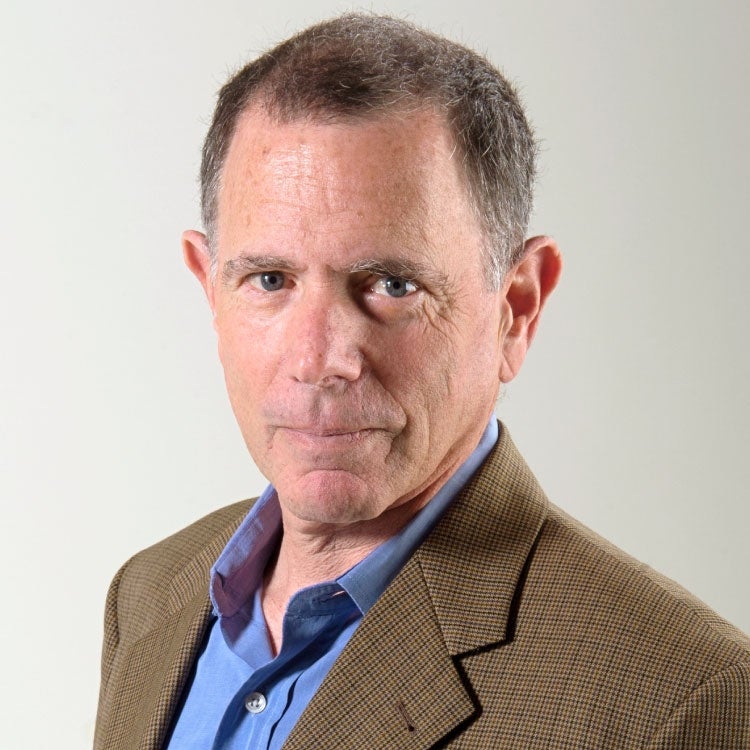
December 2022
December 2022
Slouching Towards Utopia - An Economic History of the Twentieth Century
Jerry Nickelsburg. Director, UCLA Anderson Forecast
Brad DeLong, Professor of Economics, University of California, Berkeley
December 2022 Economic Update
- The latest CPI release suggests inflation is slowing, down from 0.4% MOM in October to 0.1% MOM in November. Overall, the CPI was up 7.1% YOY, the smallest 12-month increase since December 2021. In November, energy, used cars, medical care services, and transportation services led the declines while food and shelter prices continued to increase.
- Measures for producer prices and wages were also encouraging, with both signaling a smaller rate of increase. However, both annualized PPI and wage growth are still too high to be consistent with a 2% YOY core PCE inflation target.
- The Fed raised its benchmark rate by 50 bps today, bringing it to 4.25-4.5%. Based on recent Fed speeches, we believe the Fed will err on the side of raising rates too much and potentially causing a recession.
A Conversation with Jerry Nickelsburg and Brad DeLong


Professor of Economics
University of California, Berkeley
This month our Forecast Direct podcast features a conversation between UCLA Anderson Forecast Director, Jerry Nickelsburg, and UC Berkeley Professor, Brad DeLong, discussing DeLong’s new book Slouching Towards Utopia – An Economic History of the Twentieth Century.
Jerry Nickelsburg: Welcome to this month's Forecast Direct; a conversation with Brad DeLong, Professor of Economics at the University of California Berkeley. Brad is an economic historian, with a deep understanding of the sweep of history. He was educated at Harvard University, is a Fellow of the National Bureau of Economic Research and was Deputy Assistant Secretary of the Treasury in the Clinton Administration. Brad has recently written a fascinating book; Slouching Towards Utopia – An Economic History of the Twentieth Century.
Brad, your book is entitled, Slouching Towards Utopia. Slouching is an interesting word. Can you explain what you mean by slouching towards utopia?
Brad DeLong: The idea is that humanity is close to and rapidly approaching the stage where we have enough technological knowledge about how to manipulate nature and organize humans to produce enough to live in what every previous century would regard as utopia. Yet, somehow, we do not think we live in a utopia, and we don't think we are getting there. So, if we are heading towards a utopia, it has not been a walk or a march or a strut or a run or a jog. It's a slouch. Something is going significantly wrong. The word comes from the great Irish poet William Butler Yeats’ post-WWI poem, The Second Coming. The last line talks about how it's not going to be the utopian paradisical descent of the New Jerusalem Second Coming that we expect. Instead, there is somewhat of a rough beast that is slouching towards Bethlehem to be born. Joan Didion used the phrase Slouching Towards Bethlehem for the title of her book of Essays about the 60s hippie era in California. So I thought Slouching Towards Utopia would make a good working title and never thought of a better one.
Jerry Nickelsburg: You write about the “long 20th century” defined as about 150 years. Why a “long” twentieth century and not the traditional 100 years?
Brad DeLong: The story I want to tell is that before 1870, technological growth was slow and Malthusian pressures were high. Before 1870, improvements in technology were slow, they're overwhelmingly eaten up by more people and smaller farm sizes. So incomes were pretty stagnant. After 1870, the growth rate of technology explodes. You have Schumpeterian Creative Destruction remaking the economy every generation and each new generation has the technology to live twice as well as the previous one. All of a sudden, the potential of a rich world in which everyone could someday have enough comes into view. That's a huge change, and that's the ride that humanity has been on since 1870.
Before 1870 there were technological innovations such as the steam engine, but none brought the growth rate of technology worldwide to more than 0.5 percent per year. Suddenly in 1870, we get the industrial research lab to rationalize and routinize the creation and development of new technologies. In the past, an inventor who had an idea had to spend the rest of their life trying to figure out how to implement the idea rather than handing it off to people who would rationalize and routinize it. The modern corporation did this. Once it was proved in one factory, it could be spread. Finally, globalization potentially spread it worldwide. Those three things hitting around 1870 close to quadrupled the growth rate of technology after 1870. That's when the ride starts and when I thought I should start the narrative of the book.
Jerry Nickelsburg: How does the rise of fossil fuel energy in the late 19th century fit into this triumvirate of elements that created this big jump in technology and living standards?
Brad DeLong: Oil is pretty hard to handle. But then you get the industrial research lab and the corporation, and so John D. Rockefeller and Company were able to spend money like water to figure out how to handle this stuff. Go into a refinery today and look at what happens. The heat, temperature, processes, taking the oil and cracking it for the different distillates – that is managed with overwhelming efficiency and is absolutely amazing. It's a high-tech, high-science, very sophisticated chemical operation. While unlocking the stored sunlight in coal was an enormous boost to the energy economy, it was oil that allowed humanity to apply enough power massively anywhere it wanted to, and you couldn't do that pre-1870. You needed modern chemistry, universities, and science and technicians in large industrial research labs and the great German organic chemistry push in order to get the oil economy up and running.
Jerry Nickelsburg: In your book you talk about Hayek and property rights and something you call “Polanyi rights”; rights that not associated with property, but that people think they have. How do these “Polanyi rights” affect the society and the allocation of resources?
Brad DeLong: They can be good or bad. For example, the citizens of Santa Monica, Pacific Palisades, or Malibu believe they have the right to have nothing ever be built in these areas. Yet given how wonderfully desirable these places are along the Pacific Coast, this has a major impact, not so much abstractly on economic growth, but on the people who are living in LA far from where they ideally would like to be, and the people who would like to live in LA but can't afford to do so.
On the one hand, there is a lot of good about a society validating and enforcing powerful rights other than property rights. After all, if the only rights that matter are property rights, then the only ones who have social power will be those who have valuable property and everyone else's style of life can exist only to the extent that it satisfies a maximum profitability test administered by somebody someplace else. But, on the other hand, these rights can be things that severely hobble our attempts to deploy technology to make us significantly richer. Karl Polanyi said, yes, there is this dilemma, but the most important thing to recognize is that society simply will not stand for a world in which the only rights that matter are property rights, and the only people who have any social power or voice are the rich who own things. And the question over the past 150 years has been: are we going to organize a society that maximizes the market’s ability to crowdsource applying technology to create wealth or are we going to have a society that recognizes, enforces and vindicates other rights?
Jerry Nickelsburg: Property rights and Polanyi rights are a part of the current electoral tension. Do you have some thoughts on that?
Brad DeLong: They're burbling under the surface, to a remarkably large degree. From 1870 until it fell apart in 1914 you had a classical, Liberal political economy order, mostly guiding the process of rapid technological development. You then had confusion from 1914 to 1933. The creation of the New Deal Order in the early 1930s under FDR and then a shift to a Neoliberal order in the late 1970s. In the 1970s, and to some extent today, is the belief that the world is over bureaucratized and that we need to let market chips fall where they may more often, if only because the market is a very good way of crowdsourcing solutions to social problems, because you then give everyone control over resources and financial incentives to solve social problems. So, around 1980, there was a shift away from Social Democracy towards “we need to let the market rip”, and to accept the unequal income distribution that the market will impose as a way of accelerating or even maintaining human progress. Now, no one is happy with that decision. Everyone wants change. And now you have elections where everyone is demanding something else, and no one quite knows what the something else is or how to implement it. I think that provides a very good framework with which to look at what's happening in this recent election, as well as the last election and the next election.
Jerry Nickelsburg: You end the long 20th century in 2010. Why not 2020 or some other date?
Brad DeLong: Well, it could be 2020. It could even be 2000, right? In 2007, it became clear that we had forgotten, or perhaps had never properly learned, what the right way was to regulate our financial markets for stability. In 2010, it became clear that we'd forgotten, or perhaps had never fully learned, how to rapidly restore an economy to full employment after a financial crisis. In 2001, we discovered that forms of religious war and terror that we thought we had outgrown four centuries ago were back. In 2003 the United States decided that it was no longer willing to be bound by the international order, but instead was going to throw its weight around like a great power. In 2006, I would argue in large part because of the decay of industrial research labs under bottom-line pressure from Wall Street on corporations, our underlying rate of technological growth began a fairly steep decline, so much so that indeed it's Taiwan rather than Intel that now makes the best semiconductors in the world. Then 2013 you get the coming of restored right-wing Populist movements, and this year we have the coming back of large-scale war between significant powers with the idea of changing national borders.
All of these things are very different from the story of 1870 to 2010, which is of technology rushing forward and humanity rapidly figuring out how to bake a sufficiently large economic pie, but not knowing how to slice and taste it, not knowing how to equitably distribute what we were producing, and not knowing how to utilize it, to live wisely and well.
And so now we face a different story. One more fraught with bigger and different problems than humanity faced between 1870, and since the average of all of these things happening is about 2010, I chose 2010 as the date to bring the story to a close.
Jerry Nickelsburg: As we look toward the future, we are looking at a physical environment that is changing rapidly. This sort of thing induces a lot of technological innovation and change, and therefore, productivity growth. One can think of the time between 1914 and 1945, with the massive destruction of old capital stocks and the replacement of new, better, more technologically advanced capital stocks as jump-starting growth. Are we looking at that as a new long 21st century or 22nd century? Or is your view more apocalyptic?
Brad DeLong: Larry Summers is on the optimistic side of this, saying that the 21st century story will indeed be the same as the 20th century story – that global warming, nuclear proliferation, right-wing and left-wing terrorism, and so forth, will be bumps in the road just as there were many huge bumps in the road in the 20th century. Indeed, technologies are continually going to race forward, we can see a lot of them already. Will it still be that humanity figures out how to bake a much larger economic pie each generation, and we wrestle with the problems of how distribution and utilization of our enormous and increasing wealth, so that come 2100, someone will write a story, not about the long 20th century, but about the long quarter millennium that started in 1870? I confess right now I feel more apocalyptic. Whether we indeed fail to stay on the path where we were slouching towards utopia after 2010, or whether we are now lost in a dark wood with night coming on is, after all, in our hands, or rather the hands of those younger than us who are going to make the big decisions.
Jerry Nickelsburg: One aspect of the long 20th century that you talk about is very extensive migration. If I remember correctly, about a quarter of the world's population moved. Climate change has the same potential for migration. Would it have the same effect?
Brad DeLong: The migrations starting in 1870 were overwhelmingly migrations to opportunity. People were moving towards where they saw a much better life was on offer -- whether it's the quarter of the male population of Norway that moved to the far side of the Great Lakes or the millions who left China for places in Southeast Asia that promised them higher wages.
Today’s migrations seem to me largely people who, for example, will flee the Ganges Delta because of too many typhoons roaring up the Bay of Bengal, people flooded out farms in Pakistan, and people in Sichuan finding their water supply is no longer reliable.
Jerry Nickelsburg: So that leaves us with a lot of uncertainty about the next century. I want to urge our listeners to read Brad’s new book, Slouching Towards Utopia. It is fascinating, and Brad has dug much more deeply than we've had time to discuss here into what makes for rapid economic growth. Brad, always a pleasure, and thank you for coming on the podcast.
